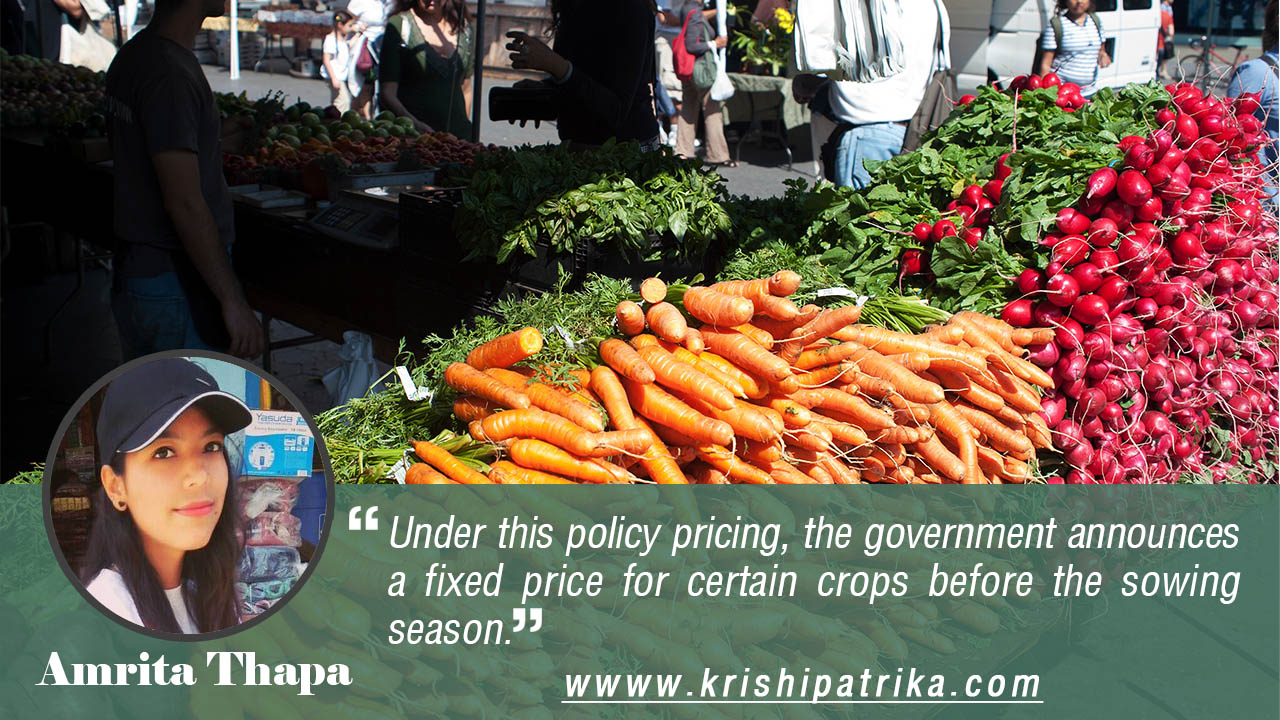
The minimum support price is a measure taken by the government to protect farmers against sudden slumps in the market price.It is what the government will pay farmers for their crops when there are no other buyers in the market.Under this policy pricing,the government announces a fixed price for certain crops before the sowing season.
Background Of MSP Policy In Nepal :
Nepal had introduced MSP in the Seventh five year plan for paddy and wheat.But it was found that the government- set prices were below farm-gate prices and the announcement was not done before the sowing season.As,a result of which farmers were unable to take into consideration MSPs into their production decisions.Hence,the policy was eventually removed in the FY 1997/98 .Later, the MSP of paddy and wheat used to be announced until 1999,but it was not of much help to farmers.Moveover, the MSP announcement would not be made in time for the farmers to make their production plans before the beginning of the planting season.In past years, proposals to fix the MSP had been sent the finance Ministry,but they were rejected.In 2012,the government announced it would resume the policy of fixing the minimum price following complaints that middlemen were determining the market rate.After that,the government had started setting the minimum support price for paddy in 2016 after suspending the practice for nearly 2 decades.The MSP of common Paddy had fixed at RS.2,230 Per quintal and of “Mota dhan”at RS.2,070.The government guaranteed to buy paddy from farmers at these prices regardless of the market price.
Current Status Of MSP Policy In Nepal :
In 2020(during COVID-19 Pandemic),The government has announced the MSP for paddy, increasing it by an average 8% as farmers prepared for this years plantatiom across the country .This is the first time the government has announced the floor price in June.This year,the MSP of common paddy has been hiked to RS.28.85 per kg,from RS.26.73 per kg in last year.Similarly,the MSP for “Mota dhan”has been set at RS.27.35 Per kg ,up from RS. 25.32 per kg last year.Last year, the government had fixed the MSP of paddy in october-end, almost four months later,as some farmers had already started to harvest their crops.
In the present scenario of COVID,farmers are worring over the declining price of their crops.The restriction on movement of vehicles in the wake of COVID-19 lockdown affected the market and supply of agricultural products.Due to this,it costs more for crops production.Although, the government has implemented the MSP policy of paddy crop,it did not fix for many other crops like maize,wheat etc.Those farmers who cultivated the maize,suffered much with fall armyworm in their field and they are not getting proper price for their produce.The farmers complained that they had sold the maize at RS.3,000 per quintal last year,Which is now declined to RS.1500 per quintal.The government ignored the farmers plights because it did not fix the support price of maize.
Conclusions And Recommendations :
As,We know that the agriculture is the main backbone of our country,the government body must need to make and implemented policies including MSP Policy of all the field crops .MSP is managed properly to make country self- dependent in agriculture, not just for food self-sufficiency but also for growth and poverty reduction.Hence,MSP is an appealing price policy because it not only provides stability of prices,but also results in higher income for farmers,thereby encouraging them to invest more in agriculture.









